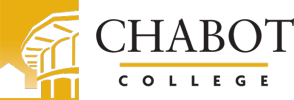
Women's Studies
This program map from the 2024-2025 catalog year represents one possible pathway to complete this program. Your pathway may vary depending on your transfer plans and also previous college credit, including AP Test scores, concurrent enrollment courses and high school articulated courses.
I'm ready to get started. What do I do next?
- Review this program map to get an overview of the required courses
- Meet with a counselor to develop your customized student education plan www.chabotcollege.edu/counseling
- Use DegreeWorks, an online student education planning tool, to track your progress toward graduation www.chabotcollege.edu / admissions / degreeworks
The Women’s Studies program offers students an understanding of gender, socialization and women’s experiences across cultures; knowledge of women’s literary, political, and historical achievements; strategies for improving communication; and promoting healthy behaviors in our personal, social, and work lives. The program includes experiential learning through a service-learning requirement.
What can I do with this major?
Students who complete a cross-disciplinary course of study that focuses on women's experiences often pursue careers in the social justice field. Possible career paths include education, law, non-profit organizations, public health, and social service agencies.
Learning and Career Pathway
- Social Sciences, Humanities & Education
Icon Key
Semester 1
List A Course #1
List A Course #2
List A Course #3
List A Course #4
List A Course #5
List A
Choose five courses from the list below: